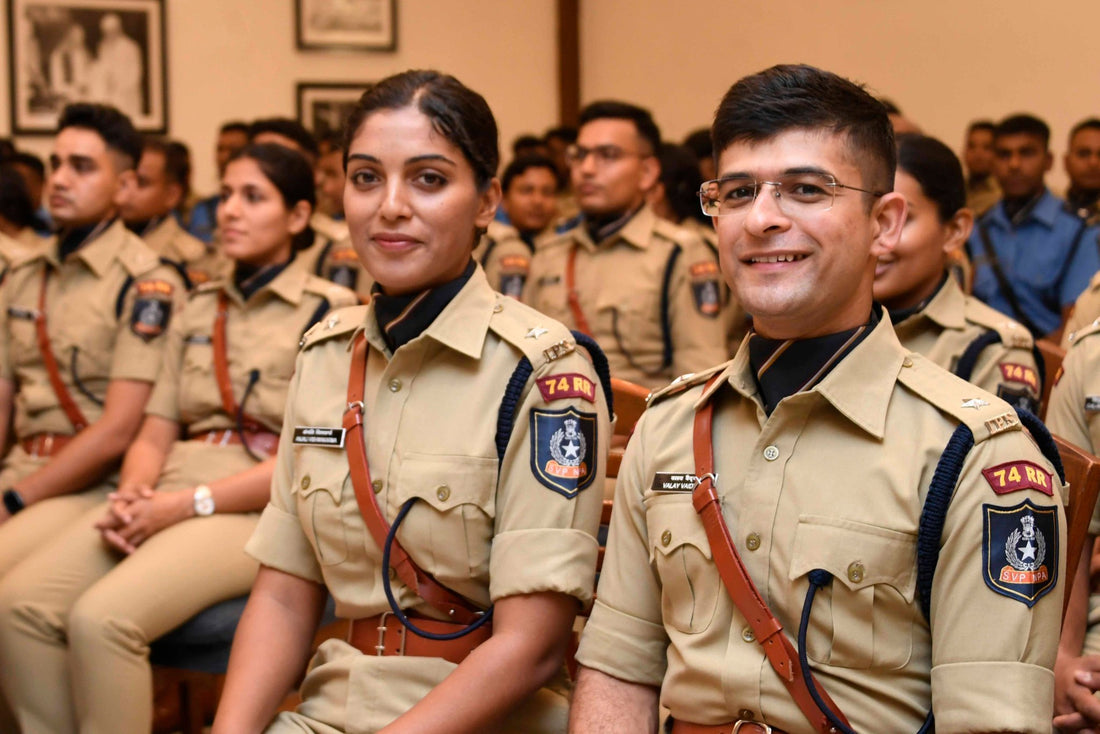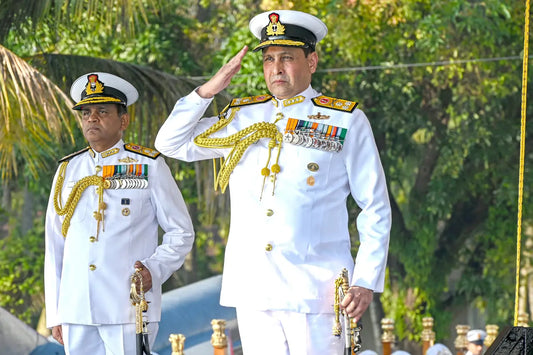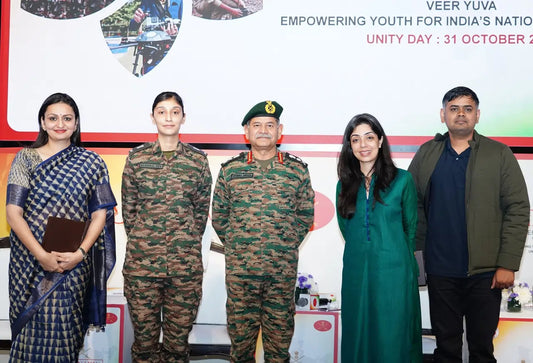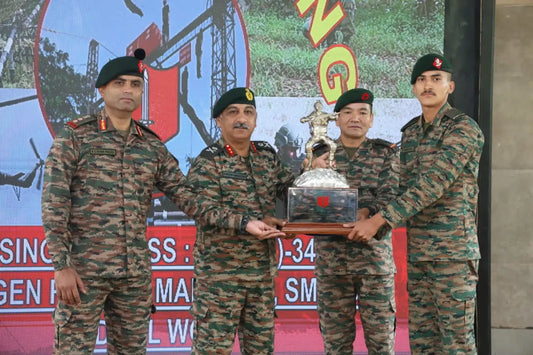Guide to Becoming an Indian Police Service Officer: Step-by-Step Journey

Becoming an officer in the Indian Police Service (IPS) is a highly sought-after career in India. This prestigious position offers individuals the chance to serve the nation by maintaining law and order and contributing to societal welfare. This article provides a detailed overview of the steps involved in becoming an IPS officer, from meeting eligibility requirements to training and initial assignments. Additionally, it includes statistics and insights to offer a clearer understanding of the journey ahead.
The Indian Police Service is a vital part of India's civil services, playing a key role in upholding the law and safeguarding citizens' rights. As an IPS officer, one is entrusted with significant responsibilities, such as overseeing law enforcement in regions, managing criminal activities, handling public safety, and occasionally leading extensive security operations. The path to becoming an IPS officer is rigorous, demanding commitment, intelligence, and resilience.
While many aspire to join this esteemed service, few fully grasp the intricacies of the selection process and the responsibilities it entails. This guide aims to illuminate the multifaceted journey, focusing on each step to ensure aspiring candidates are adequately prepared for future challenges.
The Indian Police Service has its roots in the British colonial era, established in 1902 as the Indian Imperial Police. After India's independence, the IPS was restructured to meet the needs of the newly sovereign nation. Over the years, the role of the IPS has significantly evolved, adapting to changes in society, technology, and regional dynamics. It now includes critical functions beyond traditional policing, such as disaster management, counter-terrorism, and community policing, reflecting India's diverse challenges and ambitions.
Today, the IPS symbolizes integrity, courage, and national service—essential qualities for effective leadership in law enforcement. This historical perspective is vital in appreciating the IPS's significance in contemporary society and the expectations placed upon its officers.
Prospective IPS officers must meet specific eligibility criteria before embarking on their journey. Only Indian citizens are eligible, and candidates must be at least 21 years old. The upper age limit varies by category, generally 32 years for unreserved candidates, 35 for OBC, and 37 for SC/ST. A Bachelor's degree from a recognized university is required, allowing for diverse educational backgrounds. Additionally, candidates must meet physical standards set by the UPSC, including height, chest measurements, and eyesight, ensuring fitness for the job's demands.
Understanding these criteria is crucial, as failing to meet any of these standards can disqualify a candidate from pursuing their goal of becoming an IPS officer.
To become an IPS officer, one must apply through the Union Public Service Commission (UPSC) Civil Services Examination (CSE). This highly competitive exam process is detailed in the official UPSC notification, which outlines the application procedure, key dates, and eligibility criteria.
Applications are typically submitted online via the UPSC website, with candidates ensuring they provide accurate information and necessary documents. Adhering to application deadlines, usually specified in the official notification, is essential.
The UPSC CSE comprises three stages: Preliminary Examination, Main Examination, and Personality Test. The Preliminary Exam is the first stage, featuring objective-type questions covering topics like General Studies and Aptitude Test. This exam serves as a filter, allowing only well-performing candidates to progress.
Preparation for the Preliminary Exam requires a structured study plan covering the syllabus thoroughly. Candidates often rely on books, online courses, and mock tests. Engaging with materials from reputable sources like SSBCrack and SSBCrackExams can enhance preparation.
Candidates who qualify for the Preliminary Exam move on to the Main Examination, the second stage of the selection process. The Main Exam consists of nine papers, categorized into qualifying and merit papers, covering subjects such as one Indian language, English, Essay writing, General Studies, and optional subjects.
Unlike the Preliminary Exam, the Mains is a subjective test requiring in-depth knowledge, analytical skills, and clear expression. This stage evaluates candidates' ability to articulate their thoughts and demonstrate a comprehensive understanding of various subjects. Preparation should focus on developing strong writing skills, subject command, and current affairs knowledge.
Those who pass the Main Exam are invited for the Personality Test, which carries 275 marks. The interview panel, typically comprising experienced professionals, including former IPS officers, assesses candidates' personality, interpersonal skills, suitability for the role, and pressure-handling abilities.
Preparation for the interview involves staying informed about current affairs, understanding social issues, and reflecting on personal experiences. Mock interviews and preparatory courses can help candidates articulate their thoughts effectively.
Upon completing all examinations, a final merit list is prepared based on cumulative performance. Candidates are ranked by total marks, with higher ranks increasing the likelihood of allocation to the IPS. Preferences and available positions influence final service allocation, requiring candidates to prioritize their choices and understand the implications.
Selected IPS officers undergo rigorous training to prepare them for their roles. This includes a three-month foundation course at the Lal Bahadur Shastri National Academy of Administration (LBSNAA) in Mussoorie, focusing on developing managerial and basic administrative skills.
Phase I Training at the Sardar Vallabhbhai Patel National Police Academy (SVPNPA) in Hyderabad lasts 11 months and covers law, policing tactics, fitness, and physical training—essential for effective field performance.
Following foundational training, candidates undergo six months of district practical training, gaining hands-on experience in law enforcement and community interaction. The final Phase II Training at SVPNPA spans one month, refining administrative and operational skills for real-world challenges.
Newly appointed IPS officers receive initial postings, often as Assistant Superintendent of Police (ASP) in various districts, providing real-world law enforcement and operational management experience.
Recruitment for IPS officers primarily occurs through the UPSC CSE, although a limited promotion quota exists from the State Police Service. This alternative path is complex, involving multiple authorities, making the CSE a more straightforward option for aspiring officers.
IPS officers' salaries align with the 7th Pay Commission, with basic pay ranging from ₹56,100 for Deputy SP (Entry) to ₹2,25,000 for Director General (Top). The approximate gross and in-hand salaries vary, influenced by allowances like Dearness Allowance, House Rent Allowance, and other perks.
| Rank | Basic Pay | Approx. Gross Salary | In-Hand Salary (approx.) |
|---|---|---|---|
| Deputy SP (Entry) | ₹56,100 | ₹67,320 | ₹71,000 – ₹72,000 |
| Director General (Top) | ₹2,25,000 | ₹2,70,000 | Varies, approx. ₹2,00,000+ |
IPS officers receive numerous benefits enhancing their quality of life, including official residences reducing living costs, access to top-notch medical facilities, and subsidized utilities such as electricity, water, and transportation.
The journey to becoming an IPS officer is rewarding but challenging. Candidates face competitive exams with thousands vying for limited positions. Success requires careful planning, dedicated study, and consistent practice.
Training is physically and mentally demanding, necessitating a balanced regimen of physical training and mental well-being. Additionally, the job's demanding nature can affect personal life, making time management and personal well-being prioritization crucial for maintaining balance.
As the IPS evolves, it adapts to new societal challenges and technological advancements. Digital policing, community-oriented policing, and mental health awareness for officers are emerging trends, offering new tools for investigation, fostering public trust, and improving overall well-being.
The path to becoming an IPS officer is a commitment to national service, integrity, and leadership. Meeting eligibility criteria, navigating the rigorous UPSC examination, and engaging in comprehensive training shape candidates to uphold the law and protect citizens' rights.
Aspiring IPS officers must employ strategic preparation, leverage effective resources like SSBCrack and SSBCrackExams, and maintain resilience throughout their journey. As India advances, the IPS plays a vital role, paving the way for individuals to make lasting societal contributions. Dedication and perseverance are essential as the nation awaits capable leaders to shape its policing future. Join those who serve—become an IPS officer!



















